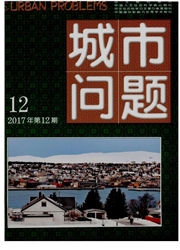

 中文摘要:
中文摘要:
发展中国家城市政府对非正规部门的政策大致有三种倾向,其一为鼓励政策,其二为限制政策,其三为逐步放松并积极引导政策。相对而言,国内除香港城市政府对非正规部门采取分类和规范管理政策外,其他城市的非正规部门政策都带有明显的中国特色,如上海针对"下岗"职工推出的"非正规劳动组织"就业政策,深圳针对无证经营的个体经济活动开展的"清无"行动等。无论城市政府采取何种非正规部门政策,其实施效果或多或少都会有不尽如人意的方面,这就不仅仅需要从非正规部门本身的政策重新认识,还需要从与其有密切关系的其他方面,如城市规划、"城中村"改造等方面进行审视和反思。
 英文摘要:
英文摘要:
There are almost three kinds of policies on informal sectors in the foreign developing countries:encouraging,restricting and guiding.The policies on the informal sectors in Chinese cities are distinctly Chinese characteristics except for the HK’s classified and canonical regulation,e.g.Shanghai’s "informal labor organization" for the laid-off workers and Shenzhen’s "clearing up the informal sectors".There exist a little bit problems in the process of implementation in all above cities.Therefore,it is necessary to survey and consider over again not only from the point view of the informal sector,but also of the urban planning and urban village transformation.
 同期刊论文项目
同期刊论文项目
 同项目期刊论文
同项目期刊论文
 期刊信息
期刊信息
